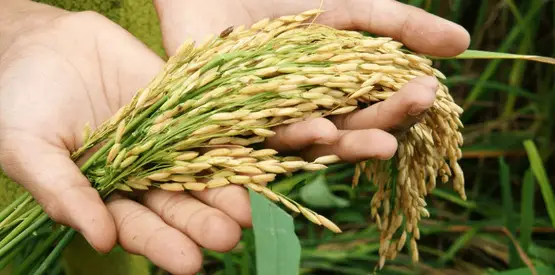Indian cuisine, a tapestry of diverse flavors and culinary traditions, finds its essential thread in Basmati rice. Beyond being a staple, Basmati holds a profound cultural significance, weaving itself into the fabric of Indian life, celebrations, and traditions. In this exploration, we delve into the roots of Basmati rice in Indian culture, uncovering the deep connections it forges and the pivotal role it plays in the culinary and cultural landscape.
1. Historical Heritage:
Basmati rice’s journey through Indian culture is as old as civilization itself. Its cultivation dates back thousands of years, with historical references to the aromatic grain found in ancient Sanskrit texts. Basmati’s legacy is intertwined with India’s agricultural history, symbolizing endurance, sustenance, and prosperity.
2. Rituals and Festivals:
In Indian households, Basmati rice takes center stage during rituals and festivals. Whether it’s the fragrant biryani during Eid, the saffron-infused rice in Puliyodarai for Pongal, or the ghee-laden rice in Meethe Chawal for Diwali, Basmati rice is the canvas upon which festive flavors are painted. Each region has its unique preparation, reflecting the diversity of Indian culture.
3. Symbolism in Weddings:
The aroma of Basmati rice wafts through the air during Indian weddings, where it holds profound symbolic significance. From the auspicious ritual of exchanging rice during the ceremony to the celebratory feast that follows, Basmati rice marks the beginning of a new chapter, signifying fertility, prosperity, and the unity of two families.
4. Culinary Versatility:
Basmati rice’s long grain rice and distinct fragrance make it the preferred choice for a myriad of Indian dishes. From the royal biryanis of the North to the coconut-infused rice of the South, Basmati’s versatility allows it to seamlessly integrate into the diverse regional cuisines that define Indian gastronomy.
5. Biryani: A Culinary Crown Jewel:
No discussion about Basmati rice in Indian cuisine is complete without highlighting the iconic biryani. This fragrant rice dish, layered with succulent meats or vegetables and aromatic spices, is a culinary crown jewel. Biryani transcends regional boundaries, embodying the essence of celebration and indulgence.
6. Offering to Deities:
In Indian religious rituals, Basmati rice often finds itself as an offering to deities. Its purity, aroma, and visual appeal make it a symbolic representation of devotion and gratitude. Temples and homes alike use Basmati rice in various rituals, creating a sacred connection between the divine and the everyday.
7. Ayurvedic Connection:
In Ayurveda, the ancient Indian system of medicine, Basmati rice is celebrated for its sattvic nature. Considered nourishing and easily digestible, it aligns with Ayurvedic principles of promoting balance and harmony within the body, making it a staple in many Ayurvedic diets.
8. Culinary Traditions:
Basmati rice is not merely an ingredient; it’s a bearer of traditions. From the meticulous process of washing the rice to the art of perfectly cooking it, these culinary practices are passed down through generations, creating a cultural continuum that connects past, present, and future.
9. Regional Variances:
India’s diverse geography contributes to the cultivation of distinct varieties of Basmati rice. Each region’s soil, climate, and water sources impart unique characteristics to the rice, resulting in variations in aroma, texture, and flavor. This regional diversity adds layers to the cultural significance of Basmati in Indian cuisine.
10. Economic Livelihood:
Beyond the culinary realm, Basmati rice plays a crucial role in the economic livelihood of many Indians. Its cultivation supports numerous farming communities, creating a ripple effect that sustains entire regions. The cultural bond with Basmati extends to the fields, where the cycle of sowing, harvesting, and celebrating the yield becomes a cultural tradition in itself.
In conclusion, the cultural significance of Basmati rice in Indian cuisine is a saga of flavors, traditions, and shared heritage. It goes beyond the confines of a kitchen and becomes a symbol of unity, celebration, and the rich tapestry of Indian life. As Basmati continues to grace dining tables across the globe, it carries with it the essence of a culture deeply rooted in its culinary traditions, making every grain a testament to the enduring legacy of Indian cuisine.
Read more:-https://gulfwaveagricom.com/





